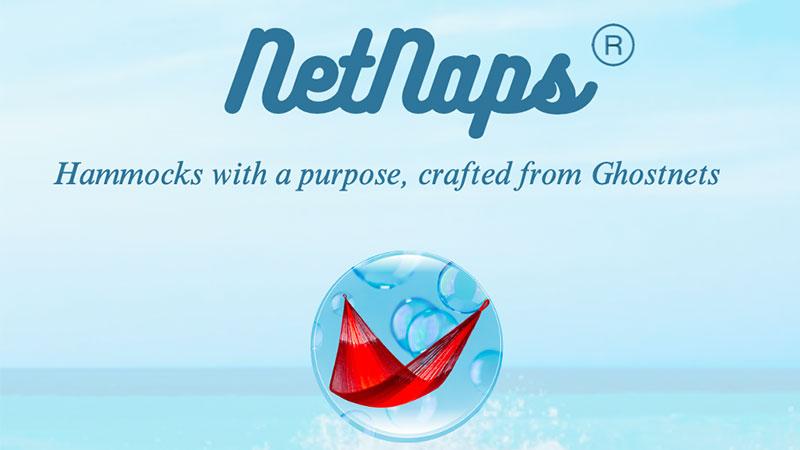With World Ocean Day taking place on 8 June, students from the University of Westminster have explored the damage caused by abandoned ghost gear, including fishing nets, lines and ropes, and used their research to turn them into useful products such as hammocks and shoelaces.

Through thorough research the students discovered that microplastics, plastic pollution and ghost gear all present a severe threat to the oceans’ wildlife. To combat this problem, they decided to take action and find a new purpose for abandoned fishing nets, coming up with two different solutions.
One of the projects is titled Hang Sustainably, Nap Comfortably - NetNaps: Hammocks Crafted from Ghostnets, and was created by Ester D’Alterio, Alexandra Simion, Vasviye Topril and Angela Doycheva. Together they came up with the idea to recycle fishing nets and use them to create waterproof hammocks.
The NetNaps substitute traditional materials with durable nylon derived from repurposed ghost nets. The process involves collecting discarded nets, cleaning and processing them into usable material, and crafting them into comfortable hammocks.
Ester D’Alterio, Digital Marketing BA Honours student and part of the NetNaps team, said: “By repurposing ghost nets, we aim to lessen the impact of these hazardous materials on marine ecosystems. This effort is part of a broader commitment to environmental stewardship and recognises that immediate action is required to prevent further damage to our oceans. NetNaps is more than a business—it is a movement towards a cleaner, healthier ocean. By turning ghost nets into hammocks, we are taking a step towards solving the plastic pollution crisis. Through innovative thinking and a commitment to sustainability, we can make a difference, one hammock at a time.”
The other project was created by Marketing Management BA Honours student Bilal Bentchakal, whose project titled From Ghostnets to Shoe Laces: Weaving a Path to Sustainability, sets out how to create shoe laces from the abandoned fishing nets. By transforming them, Bilal is able to not only mitigate the harm they cause but also promote sustainable fashion in an age of fast fashion and mass consumption.

Bilal Bentchakal presenting at the London Student Sustainability Conference 2024
Bilal said: “In my personal view, providing a tangible solution to this issue felt incredibly fulfilling, especially considering we live in an era of mass media, superficial responses and calculated PR moves where many simply offer lip service while maintaining the status quo. While I acknowledge that this project is merely a suggestion, after all I am just a student, I still have the hope to see it, one day, become reality and bring real change.”
The students had the chance to share their projects at the London Student Sustainability Conference in February.
These student projects directly contribute to the United Nations Sustainable Development Goal (SDG) 14: Life Below Water, as reducing marine debris helps foster healthier oceans for future generations. Since 2019, the University of Westminster has used the SDGs holistically to frame strategic decisions to help students and colleagues fulfil their potential and contribute to a more sustainable, equitable and healthier society.
Read the University’s Sustainable Development Goals Report 2022-2023 to see more about how Westminster supports SDGs.
Find out more about the School of Life Sciences at the University of Westminster.


